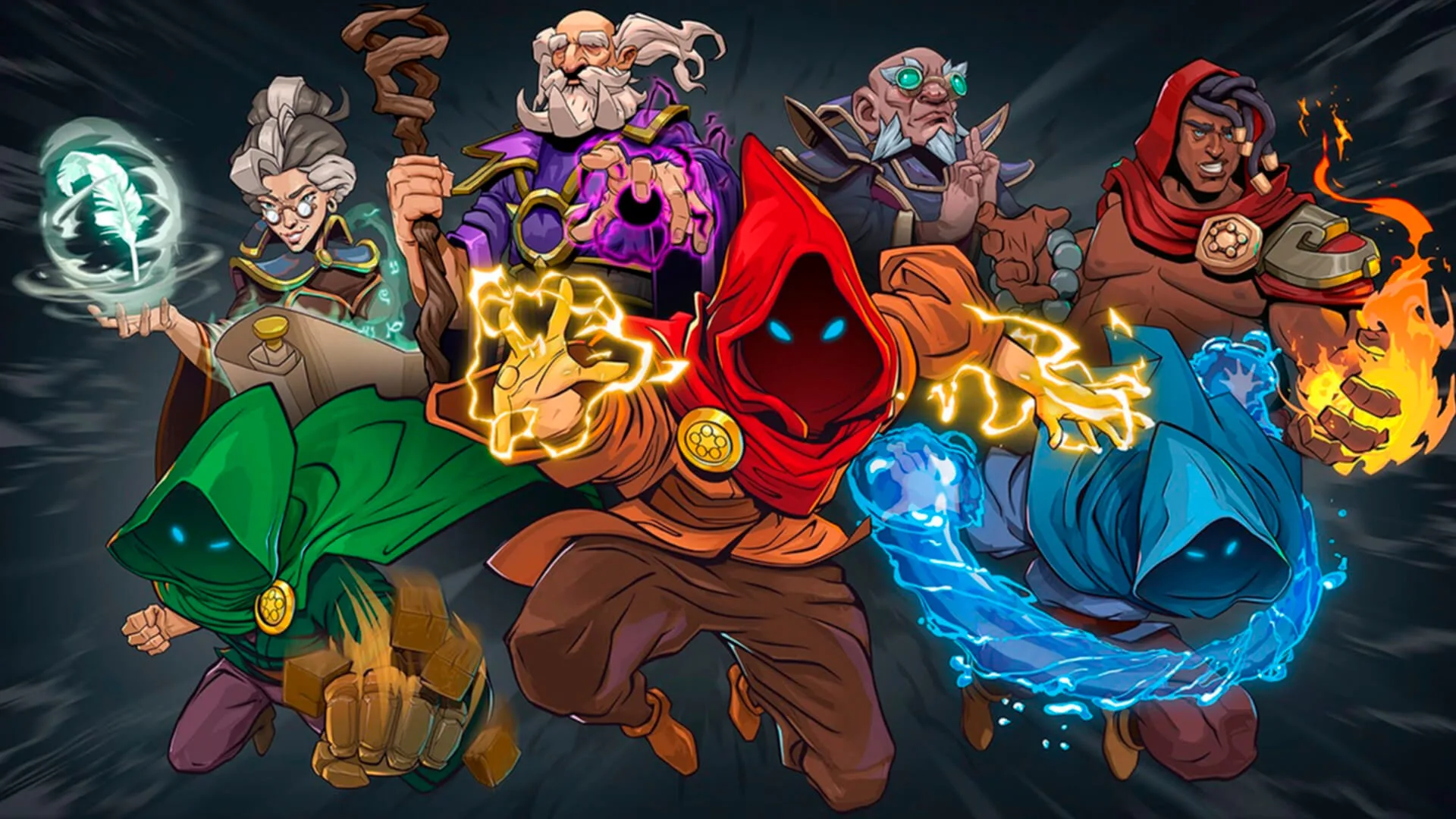Calling Absolver a martial arts Dark Souls would be to do a huge disservice to the incredibly unique experience that French studio Sloclap has crafted. Absolver’s deep combat system is only one of the many elements that make it one of the most fascinating games I’ve played in a long time.
Structure-wise, anyone who’s had the least bit of experience with From Software’s games is bound to see the obvious connection that Absolver’s visually stark and at the same time beautiful world has to the many places you slashed your way through in Dark Souls and its brethren. While considerably smaller, it’s composed of a hub and interconnected areas that are accessible in any order you wish to tackle them from the very beginning of the game.
After creating your character and choosing which of the three combat styles you wish to start out with — you’re freely able to learn the others by joining schools after a certain point in the game, which are Absolver’s answer to clans or covenants — you’re free to explore the world at your leisure. All the while, you’ll punch and kick your way through other fellow masked prospects that are vying for the coveted position of absolver, a peacekeeping group and sole remains of an empire long gone.
Things aren’t as simple as button-mashing your way through brawls like you would in a beat ‘em up game. Absolver’s combat demands dedication, and most importantly, patience. All moves are intrinsically tied to a stamina bar, and their input is dependant on your stance and positioning, meaning that not only do you have to mind how much power you have left to attack or defend, keeping an eye out to which way you’re facing is paramount to countering and finishing off attackers. Similarly to For Honor, you’re given four directions you can attack and defend from, but it’s the way that your moves string together that sets Absolver apart. That system is akin to how a fighting game works, where you string together moves in an attempt to keep a flow going and keep your opponent on their toes.
It’s not something that’s merely limited to a rock-paper-scissors of certain moves being good against some while failing when countering others, either. The flow that comes from pulling off moves one after the other naturally transfers from pose to pose, so if you become good at keeping that rhythm going, you’ll eventually transition from position to position as some of the moves you compose your fighting deck with have the property of changing your stance when they’re used. Then again, you can manually change stances on the fly, too, and works well in helping you fake out opponents when needed, switching and popping off moves to catch an opponent unaware.
Learning new moves is also something quite unique in Absolver. Instead of simply acquiring new abilities as you level up — which you do and earn skill points to put into classic RPG stats such as Will and Strength — you build up your repertoire by defending incoming attacks from enemies, slowly earning xp for particular moves, and once you fill their individual bars, they can be added to your combos. It’s an interesting system to be sure, because it teaches you how those moves can be useful by literally showing you how. It’s an intimidating way of handling teaching players that works pretty well if you’re open to the notion that you won’t be a Jackie Chan fighting machine straight out of the gate.
Speaking of opponents, you’re open to being attacked by other Absolver players if you decide to play the game online. The same works for cooperation, which you can signal any people you find in the world along with a host of different emotes and a duel challenge signal that you can give to anyone who wish to duke out against. The closest comparison I could make is to Journey, in the way other players might just randomly pop into your session and possibly help you make progress, or hamper it like a jerk. Independently of whether or not they’re friendly to you, it’s entirely possible to harm them during the scuffles you get with computer-controlled opponents, even if they’re already on your “team”, which plays into the chaotic nature of a brawl. At this point in Absolver’s lifespan, a couple weeks after its release, most of the players I’ve ran across were more than willing to cooperate while milling about in the world and fighting the same NPCs everyone else is tasked with taking down, so I haven’t really ran into any issues with griefers, but your experience may vary.
There’s also the option of stepping into an arena and having a go at PVP, which is an entirely separate component of the game that’s accessed via Absolver’s equivalent to a Dark Souls’ bonfire, a safe zone in which you can also access your level-up and equipment menus. There’s a tiered system of fights that you can partake against other humans, and the further you get into it, upgrades become available to your overall online experience with the game, such as being able to create your own fighting school in which you can then strive to be a master, gathering other players as your pupils. Even if you don’t end up running your own thing, it’s important to join up to one of these groups, as new moves become available to train and eventually learn, as well as the aforementioned different fighting styles.
The closest thing that can be called story progression in Absolver takes about four hours to beat, but you’re given plenty of options to keep your experience going if you wish to master everything the game has to offer. Just like the PVP tier system for fights with other players online, each of the boss fights from the progression portion of the game can be replayed at higher and higher difficulties, which work as another avenue to level up and eventually learn new moves. In my time with the game, I felt like the initial difficulty for these encounters is already darn high, but I can see myself jumping back in and trying these fights out just to see how well I’d fare with the knowledge I’ve acquired during my journey.
Absolver manages to feel familiar, at the same time throwing in mechanics that certainly not been part of an exploration game before. While not nearly as huge in terms of scale as one of the Souls games, Absolver’s grand in ways that can only be discovered if you invest the time and effort needed to carve into its enormously deep gameplay. It’s a surprisingly rewarding indie game that can easily become an obsession. It’s something else.






